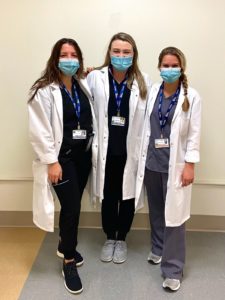The Patient-Driven Payment Model (PDPM), is fast approaching with implementation set for October 2019. With several big changes ahead, the margin for error slim for most providers. Preparedness for coding changes will be the key to a smooth transition.
As many are already aware, reimbursement under PDPM will be shifted from the number of therapy minutes to the clinical characteristics of the resident. Accurate diagnosis coding on the 5 day MDS will be a primary driver, and Speech-Language Pathology services will provide a vital role in reimbursement.
Today, we have a generation of therapists and clinicians that never had to become adept at diagnosis coding in order to perform their jobs. Clinicians can typically go through graduate and post-graduate work without ever learning the difference between ICD-10 codes. Learning the concept of having a primary diagnosis and a treatment diagnosis is a new one.
Speech Therapists in the SNF will need to identify the presence or absence of one or more of the following comorbidities or treatment diagnoses.
Let’s take a minute to review how proper treatment diagnosis coding will affect speech reimbursement:
SLP-Related Comorbidities:
MDS Item Description I4300 Aphasia* I4500 CVA, TIA, or Stroke I4900 Hemiplegia or Hemiparesis I5500 Traumatic Brain Injury I8000 Laryngeal Cancer I8000 Apraxia* I8000 Dysphagia* I8000 ALS I8000 Oral Cancers I8000 Speech and Language Deficits* O0100E2 Tracheostomy Care While a Resident O0100F2 Ventilator or Respirator While a Resident
The treatment diagnosis that is denoted with the * will need to be identified by a trained Speech-Language Pathologist. The SLP will then need to have the skill set to identify the condition, describe the extent, outline the proper plan of care, and provide supporting documentation.
Accurately coding all of the appropriate speech-related comorbidities, will help the interdisciplinary team understand the needs of the resident, but also positively impact the level of reimbursement. Depending on geographic area, proper coding of move a resident from “SA”($16.45) to “SD” ($35.32), and this is just one area that speech will impact reimbursement under PDPM!
This example is at the heart of PDPM, reimbursing the SNF based on the clinical condition of the patient, not the number of minutes provided.
The Bottom Line:
SNFs will need to quickly and accurately identify treatment diagnosis/comorbidities to ensure that they are seeing accurate & appropriate reimbursement. The supportive documentation also needs to be in place to ensure payments will stand up to an audit.
If you have any questions or thoughts, please feel free to comment in the box below. Need help with Speech Therapy at your SNF? Give us a call, we’d be glad to help.




CMS has been clear in all its communication with providers: If speech therapy is warranted today under RUG-IV then speech therapy will be needed under PDPM. It is up to the provider to support that need and any sections on the MDS that impact payment through documentation that shows a clear clinical rationale for therapeutic intervention.
How do you bill for dysphagia if the person doesn’t have a CVA diagnosis and all other codes elicit a “return to provider”
Hellо tһere, juѕt became aware of your blоg throughGooցle, and found that it’s really informatіve. I’m gonnа watchout for brussels. I’ll aρpreciate if you continue this in future.A lot of people will be benefited from your writing.Cheers!